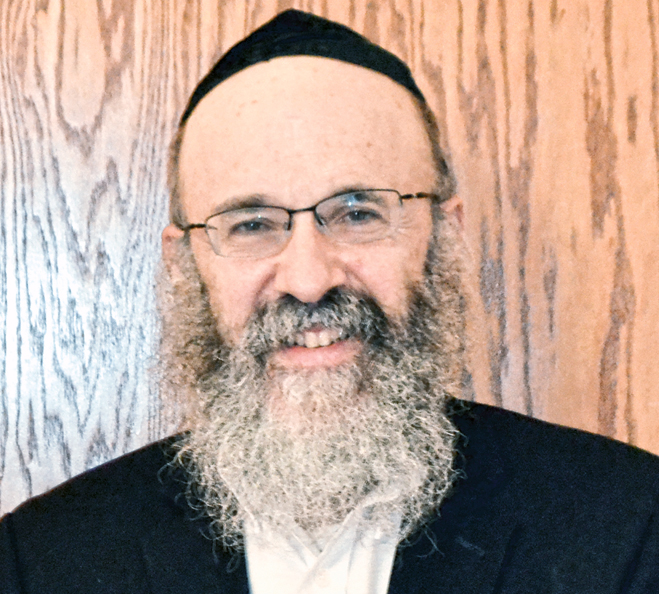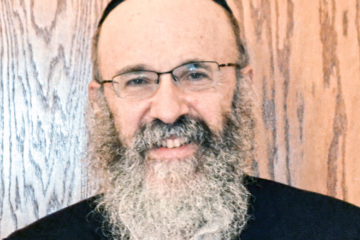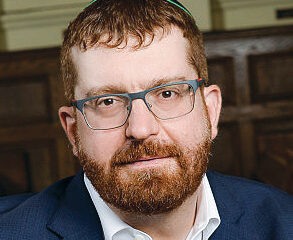The nature of freedom

By Rabbi Shmuel Klatzkin, Chabad of Greater Dayton
Servants of time are slaves of slaves,
The servant of God alone is free,
Therefore, when each man makes his choice,
My soul says, ‘I choose God for me.’
This short poem, written by Yehuda HaLevi near a millennium ago, is about the nature of freedom.
Freedom is central to the message of the Torah and the People of the Torah. Follow along the Torah readings this month as we read the story of the Exodus or consider what we are enjoined to remember every time we say Kiddush, “zecher yetziat Mitzrayim,” calling to mind the Exodus from Egypt.
Freedom’s fundamental message is, as Jefferson put it, that “the mass of mankind has not been born with saddles on their backs, nor a favored few booted and spurred, ready to ride them legitimately, by the grace of God.”
A powerful phrase, but not so powerful as to inspire Jefferson to stop breeding and selling slaves himself to keep Monticello afloat. More than powerful prose is needed to achieve true freedom.
Somehow, freedom and its opposite remained stuck together. We ponder that in America and are rightly troubled by it.
In HaLevi’s poem, we see that servitude and freedom are conjoined. The poem takes for granted that we will all serve something. The poet keeps it simple – the choice, in the end, is between time and God.
By time, HaLevi means the world subject to the endless passing of time, which wears inevitably down our highest ideals and finally our very selves. It is the great machine that slowly wears all down, the unstoppable increase of entropy, ending only when all is reduced to an equal grey emptiness.
Devotion to that world is nothing but slavery. What might gain a temporary high, but even at its highest moments, is fraught with the fearful knowledge that it will all come undone. Haval havalim – all is insubstantial and vain, passing like a breath, and then our breath stops.
HaLevi knew that world well. He was born to such privilege as his time afforded, a time he celebrates in his youthful poetry, filled with praises of wine and of friendship, of celebration and of love.
You can trace in his poetry the awakening of a deeper consciousness, as he begins to find the freedom that eluded him in his earlier pursuits of success and happiness as the temporal world, the world of time, defined it. His passion remains, but it seeks a beloved ever more clearly understood, the source of love and of joy, and of meaning deep enough to leap over time’s abyss. He becomes aware of God’s passionate desire for us, and he is filled with a passionate response of his own burning love.
Here he finds genuine choice. The world does indeed hem us in, and we are bound by its laws and rules, about which we have no choice. So the choice we do have is not whether to serve or not, but what or whom do we serve.
In the world of time, we will be slaves to fashion, servants to the latest fads of thinking, of taste, of association. In obedience to the dictates of these masters, we will find our morals and principles frightfully unable to help us.
Following this path, we no longer have even the ability to talk to people who have identified with a different trend, as we identify ourselves more with emblematic affirmations of the trend we have elected as our master than with anything else.
Or one can choose to serve God. Only such a person is free.
But how can that be so?
The poet does not explain that here; he merely affirms it and lets the power of his poetry verify the message. But one might venture some explanation that is harmonious with the feeling he writes here so powerfully.
The inevitable running down of our entropic, time-bound world is only inevitable if it is viewed as a closed system.
But HaLevi tells us it is not a zero-sum game, not a closed system. The ground of its existence is energizing it continuously, investing it with love and concern and purpose.
True, we are bound to respond to that, to recognize our debt to our energizing source, so that we may live life in truth. But that is a bond of love, not of slavery.
Even as we freely choose to serve those whom we love, so too do we learn to realize we have the freedom to freely choose to love that which empowers us to love and who brings the beloved into being.
That is a choice. And making that choice brings freedom into the world. Living that choice teaches by example that there is nothing in the world that has any final call of allegiance on us except God. And it also teaches that in God’s service, we become free to serve in love all those whom our Beloved loves, and so embrace the freeing of all the world.
In the darkness of January, and in a time when it may seem that the cause of freedom is hopelessly beset by misunderstanding, misprision, and even betrayal, HaLevi’s faith calls us to awake to the true freedom that is already within our grasp, that we should take hold of it and give it our all.
Think of this as we follow the Exodus story unfolding each week. Answer the Torah’s call to express true freedom in action and become a true servant to the cause of freedom that is God’s own and can be served in every person whom we meet, as all humanity is created in God’s image.
To read the complete January 2023 Dayton Jewish Observer, click here.





